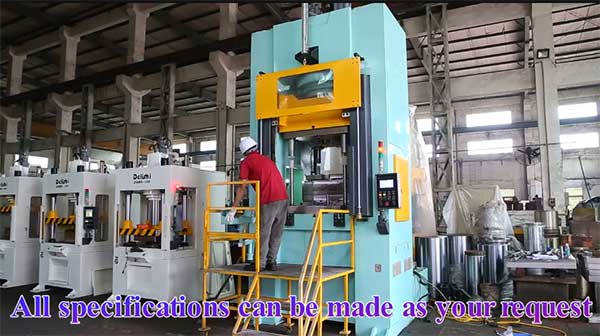Once the basics are determined, the next thing to consider is options. Most hydraulic press builders offer a wide array of accessories. These commonly include:
Distance reversal limit switches
Pressure reversal hydraulic switches
Automatic (continuous) cycling
Dwell timers
Sliding bolsters and rotary index tables
Die cushions
Ejection cylinders or knockouts
Electronic light curtains and other devices
Touch screen controls
Servo system feedback for precise, consistent, repeatable stroke control
Then you need to determine what type of quality you need to get the job done. Quality can vary greatly from press to press. There are light-duty presses that are capable of "spanking" the work momentarily and reversing, and there are heavy-duty machines designed for general purpose metalworking applications.
A few construction points can be used to compare one machine with another:
Frame: Look at frame construction-rigidity, bolster thickness, dimensional capacity, and other factors.
Cylinder: What diameter is it? How is it constructed? Who makes it? How serviceable is it?
Maximum system pressure: At what psi does the press develop full tonnage? The most common range for industrial presses is 1000 to 3000 psi.
Horsepower: The duration, length, and speed of the pressing stroke determines the horsepower required. Compare horsepower ratings.
Speed: Determine the speed each hydraulic press offers.



 +86-769-8306-1993
+86-769-8306-1993
 E-mail
E-mail
